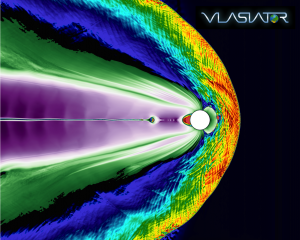Applications are invited for postdoctoral research positions as Nordic Postdoctoral Plasma Fellows (NORPPA Fellows) at the University of Helsinki, Finland. The selected fellows will lead an independent research program on a topic that has strong synergy with space physics research and/or plasma astrophysics conducted in Helsinki. We anticipate being able to offer multiple positions.
A successful applicant will work in a vibrant research environment with theoretical, observational, and computational research on space and astrophysical plasmas. The research of plasmas at the University of Helsinki is supported by numerous grants, including 3 ERC grants and the Academy of Finland Centre of Excellence. The fellow will conduct research under the mentorship of professors in space physics (Minna Palmroth; https://www.helsinki.fi/en/researchgroups/vlasiator) and astrophysics (Joonas Nättilä; http://natj.github.io/group/).
Application process: The initial appointment will be for 2 years, with an anticipated renewal for a total of 4 years. The start date is flexible. The applicant should have a Ph.D. in space physics, computational physics, plasma physics, astrophysics, or a related field (by the appointment date). Applicants should submit a CV with the list of publications, a research statement (max. 3 pages), and arrange for three reference letters to be sent directly by the referees. The research statement should summarize past research achievements and describe the planned research program. All application material should be sent to hewan.zewde(at)helsinki.fi with the subject title “NORPPA Fellowship Application 2023” by November 15, 2023. The University of Helsinki fosters equality, diversity, inclusion, and workplace well-being.
Helsinki: Finland has been selected as the happiest country six times and is one of the safest locations worldwide. We enjoy beautiful nature and the cleanest air in the world. Helsinki is an international city with many cultural and recreational activities and outstanding services for families and children.
Salary & Benefits:
The annual salary will be according to the University of Helsinki salary rules, including comprehensive occupational health care access. The fellows will also have ample travel funds and access to exceptional computing resources, including the pre-exascale supercomputer LUMI and a new, dedicated local computing cluster. In addition, the position includes a paid five weeks of vacation per year, paid sick leave, and an option for a paid 6-month parental leave (per parent).
Links:
https://blogs.helsinki.fi/spacephysics/
https://www.helsinki.fi/en/about-us/careers/information-arriving-international-staff

